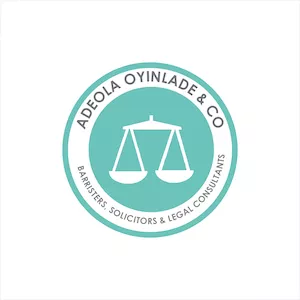- within Insolvency/Bankruptcy/Re-Structuring topic(s)
- in China
- with readers working within the Retail & Leisure industries
- within Insolvency/Bankruptcy/Re-Structuring topic(s)
- within Insolvency/Bankruptcy/Re-Structuring, Insurance and Real Estate and Construction topic(s)
- with readers working within the Retail & Leisure and Law Firm industries
Introduction
Debt recovery refers to the process of collecting money owed by individuals or corporations. It is crucial for maintaining financial health and has direct implications for credit ratings. The process typically follows a structured approach, ensuring compliance with legal frameworks.
Definition of Concepts
Debt
A debt is liability on a claim; a specific sum of money due by agreement or otherwise. It is the aggregate of all existing claims against a person, entity, or State, a non-monetary thing that one person owes another, such as goods or services." Per JOSEPH TINE TUR, JCA (Pp 60 – 60 Paras E – F). See Ekaete v. UBN Plc (2014) LPELR-23111(CA). The Black's Law Dictionary defines "debt" as a specific sum of money due by agreement or otherwise. For a claim to be classified as a debt, it must meet certain criteria:
- The amount owed must be a certain, fixed, or liquidated sum.
- There must be a due date that has passed.
- The obligation arises from an agreement between the parties involved, namely the debtor (the person who owes the debt) and the creditor (the person entitled to recover the debt).
Debt Recovery
Debt recovery refers to the systematic process undertaken by creditors to collect unpaid debts from debtors. This process becomes necessary when a debtor fails to fulfill their financial obligations within the agreed timeframe. The primary goal is to secure payment for outstanding debts, which can involve various methods such as direct communication, negotiation and legal action.
Legal Framework for Debt Recovery in Nigeria
- Common Law and Statutory Law
Nigeria's legal system is influenced by English common law, and many principles of contract law are derived from this heritage. These statutes include:
- Sale of Goods Act: Governs sales contracts and related obligations.
- Bills of Exchange Act: Regulates negotiable instruments.
- Carriage of Goods by Sea Act: Addresses liabilities in shipping.
- Hire Purchase Act: Governs hire purchase agreements.
- Sheriff and Civil Process Act: Provides mechanisms for enforcing court judgments.
- Constitutional Framework
While the 1999 Nigerian Constitution does not explicitly address debt recovery, it serves as the supreme law, ensuring that any conflicting laws are rendered void under Section 1(3). This establishes a foundational legal context for all debt recovery efforts.
- Civil Procedure Rules
Each state in Nigeria has its own Civil Procedure Rules, which outline the procedures for initiating debt recovery actions, including filing claims, presenting evidence, and obtaining judgments.
- Bankruptcy and Insolvency Laws
The Bankruptcy Act and the Failed Banks (Recovery of Debts) and Financial Malpractices in Banks Act provide frameworks for dealing with insolvent debtors, allowing creditors to recover debts through structured processes.
- Companies and Allied Matters Act (CAMA)
CAMA includes provisions that protect creditors' rights and outline procedures for recovering debts owed to companies, including the registration of charges over debtor assets.
- Central Bank of Nigeria Guidelines
The Central Bank issues regulations that guide financial institutions on best practices for debt recovery, particularly concerning non-performing loans.
- Customary and Sharia Law
In certain regions, especially rural areas, customary law may influence debt recovery practices. Sharia law may also apply in specific contexts involving Islamic finance.
Regulatory Bodies
- Central Bank of Nigeria (CBN)
The CBN regulates financial institutions and implements policies to enhance loan recovery processes. It introduced the Global Standing Instruction (GSI), allowing banks to recover debts directly from borrowers' accounts across multiple banks, thereby streamlining the debt recovery process for financial institutions.
- Asset Management Corporation of Nigeria (AMCON)
AMCON is tasked with acquiring non-performing loans from banks and managing distressed assets. It plays a pivotal role in stabilizing the banking sector by recovering toxic debts through legal means, thus reducing financial risks and enhancing overall financial stability in Nigeria.
- Nigeria Deposit Insurance Corporation (NDIC)
The NDIC oversees the resolution of failed banks and manages the recovery of outstanding loans owed to these institutions. It ensures compliance with proper lending practices and assists in recovering debts when a bank's license has been revoked.
- Corporate Affairs Commission (CAC)
The CAC regulates corporate entities and provides legal frameworks for creditors to register charges over debtors' assets. This registration helps creditors secure their interests and facilitates debt recovery when corporate debtors default
- Federal Competition and Consumer Protection Commission (FCCPC)
While primarily focused on consumer protection, the FCCPC can address unfair practices related to debt collection, ensuring that creditors adhere to ethical standards during recovery efforts.
Effective Strategies and Stages for Debt Recovery
- Amicable Settlement: Attempt to resolve the issue directly with the debtor to maintain relationships. This can involve informal discussions or negotiations to agree on repayment terms.
- Engagement of Professionals: If initial attempts fail, consult a lawyer or a debt collection agency. Provide necessary documentation, such as invoices and agreements, to support your claim.
- Demand Letter: If initial attempts fail, send a formal demand letter outlining the amount owed and payment expectations. This letter serves as a legal notice and can prompt payment before further action is taken.
- Mediation and Arbitration: If there is a mediation clause in the agreement, attempt mediation before filing a lawsuit. This can often lead to quicker resolutions without court involvement.
- Legal Action: If the debtor remains indifferent, file a suit in the appropriate court (Magistrate Court, State High Court, or Federal High Court) using fast-track procedures like the Undefended List or Summary Judgment Procedure.
- Enforcement of Judgment: Once a judgment is obtained, enforcement can be pursued through mechanisms such as garnishee orders or writs of execution.
Legal Considerations
There is a six-year statute of limitations for recovering debts arising from contracts in Nigeria, meaning claims must be initiated within this timeframe
Challenges in Debt Recovery
- Procedural Delays: Court proceedings may be lengthy and complex, affecting the timely collection of debts.
- Lack of Documentation: Inadequate documentation of loan agreements and transactions might hinder creditors' ability to substantiate obligations and take legal action.
- Debtor Insolvency: If a debtor declares insolvency or lacks the resources to repay their obligations, creditors may struggle to retrieve owing payments through legal procedures.
Using Law Enforcement Agents to Recover Debt
The law is that a party cannot resort to the use of the Police or any law enforcement agency, to pursue recovery of debt. The primary duty of the Police by Section 4 of the police Act is the prevention of crime, investigation and detection of crime and the prosecution of offenders. The Police is not a debt recovery agency and has no business to dabble into contractual disputes between parties arising from purely civil transactions. When a purely civil matter is reported to the Police, such a person cannot go scot-free as the report ought not to have been made at all since it is not within the purview of Police duties. It is a report made malafide and he will be equally liable for the action taken by the Police irrespective of whether he actively instigated them or not, since he had no business involving the Police in a purely civil matter in the first place. See Madaki & Anor v. GTB & Anor (2022) LPELR-57419(CA).
Conclusions
The nature of debt recovery can vary significantly based on factors such as the amount owed, the debtor's willingness to cooperate, and the legal framework governing debt collection in a specific jurisdiction. By following these structured strategies and stages, creditors can improve their chances of successfully recovering debts in Nigeria while adhering to legal requirements.
The content of this article is intended to provide a general guide to the subject matter. Specialist advice should be sought about your specific circumstances.


